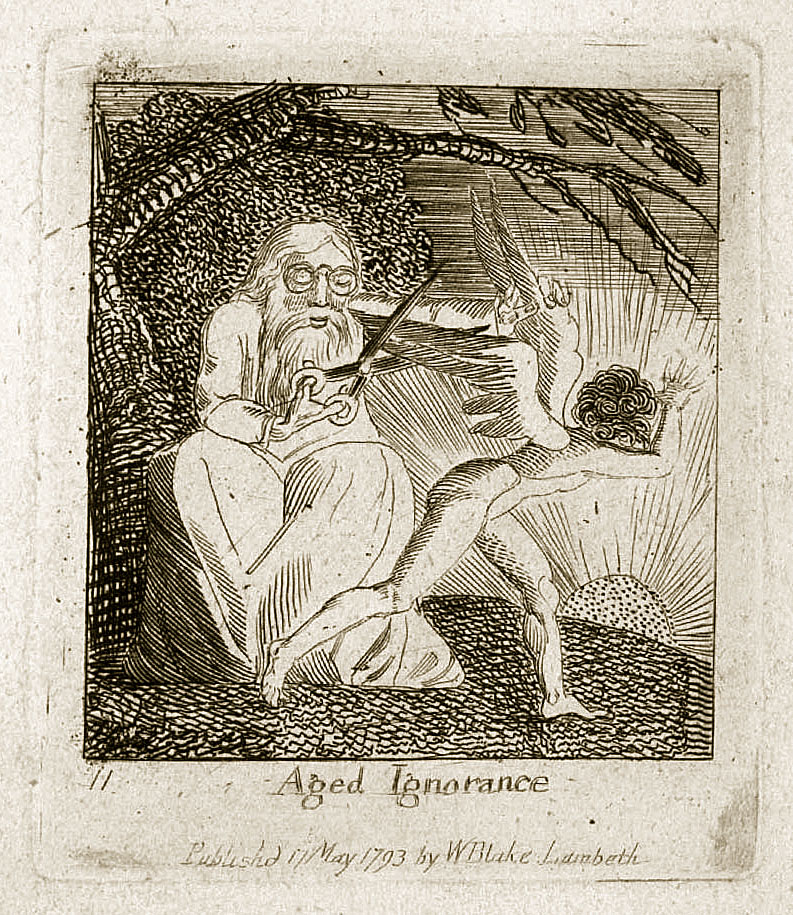 |
| Wikimedia Commons For the Children: Gates of Paradise Plate 11 |
I was surprised to learn that Maurice Sendak, the author of numerous children's picture books, was influenced by William Blake. Sendak knew that he could not comprehend the poetry of William Blake but he loved it anyway. His mind did not function like Blake's mind but below the surface of consciousness they shared a common willingness to explore the dark unknown which lay beneath.They both knew that the mind of the child was foundational to penetrating the subconscious which was key to understanding the way that the conscious mind organizes and expresses itself. It is more than coincidental that Sendak's companion of fifty years was the psychiatrist, Eugene Glynn.
Sendak's final book, My Brothers Book, was a tribute to his brother Jack who had died eighteen years previously. Several of the pictures in it are echos of Blake images including this one from the book Milton using a pose in which Blake portrayed himself and his deceased brother Robert in mirror images. Another illustration is reminiscent of the final image of The Four Zoas.
Sendak acknowledged that his work was not specifically directed toward children. He produced books that came from his imagination and they fell into the hands of those who could respond to them. Children responded enthusiastically making Where the Wild Things Are, beloved, although parents may have been unsettled.
Sendak's use of nudity in his illustrations, such as those for In The Night Kitchen, may have owed something to his appreciation of Blake's freedom to draw the human body without obscuring its outlines with garments. Sendak, like Blake, was an iconoclast: he refused to abide within the narrow restraints dictated by the majority culture.
Songs of Innocence, Introduction, (E 7)
"Piping down the valleys wild
Piping songs of pleasant glee
On a cloud I saw a child.
And he laughing said to me.
Pipe a song about a Lamb;
So I piped with merry chear,
Piper pipe that song again--
So I piped, he wept to hear.
Drop thy pipe thy happy pipe
Sing thy songs of happy chear,
So I sung the same again
While he wept with joy to hear
Piper sit thee down and write
In a book that all may read--
So he vanish'd from my sight.
And I pluck'd a hollow reed.
And I made a rural pen,
And I stain'd the water clear,
And I wrote my happy songs
Every child may joy to hear"
No comments:
Post a Comment